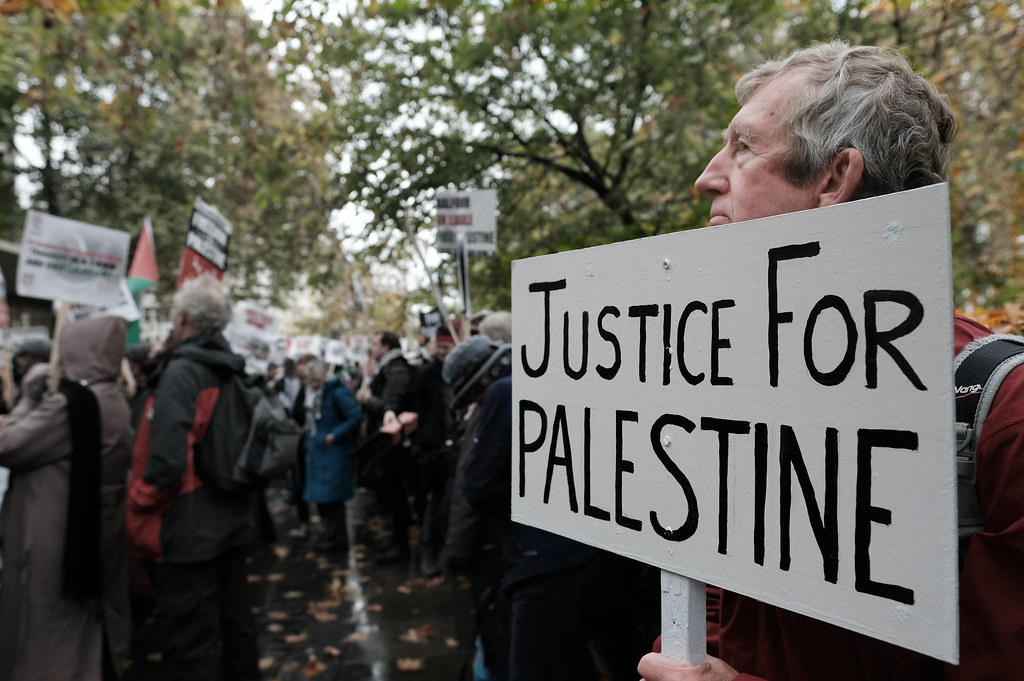
Nizar Banat, a name famous for actively raising questions on the human rights situation in the Palestinian Region and questioning the Palestinian National Authority, faded away a year ago shortly after he was arrested and brutally assaulted by Palestinian security forces. We are considering a trial that was under constant international media scrutiny, but still, a year has passed since this case was dealt with in the military court, though under international humanitarian law, it should have been handled under the civilian justice court.
Justice delayed is Justice Denied but the real question is, Where to find justice?
What is justice for a war-affected, displaced population, which is constantly under a vulnerable situation of suffering and pain? Throughout the article, we will take a look at the civil justice system of the Palestinian National Authority and its efficiency in providing justice to the general public. Our main focus would be to construct a picture of the Rule of Law in the region and the current state of vulnerability of Human Rights Laws.
The Historical Context
The Palestinian law was enacted under the 1993 Oslo Accords, with the establishment of The Palestinian National Authority, which later in 1997 enacted the Palestinian Basic Law and hierarchical legal system. The rule of law stands. is the principal guarantee that protects individuals’ rights and freedoms in the face of the arbitrariness of state authorities, but fails to be successful in implementing many aspects of it because of 3 primary reasons structural reasons –
- There is no doubt that discussing the topic of rule of law within the Palestinian territories after the establishment of the Palestinian National Authority (PNA) is not easy, as we are not discussing a system or authority within an independent state, but a political entity that lacks the components of complete sovereignty.
- The Israeli state still has control over Palestinian regions, which leads to fragmentation, leading to social and political instability, and becomes an obstruction to unifying the legal system and improving accessibility
- The influence of different regimes and external forces on the legal system. Throughout different political conditions, a common aspect has been the marginalization of civil justice, which till the present day purposefully neglected it and deprived it of its most important components, since earlier a neutral judiciary was opposed and was bombarded with a series of restrictions leading to the current situation.
Yesterday that deteriorates today
Nizar Banat’s trial has brought to the spotlight, another deep gap that is inflicting harm on the already vulnerable Palestinian population.
The Palestinian Civil Courts and the civil justice system, though have been a priority for the United Nations post the establishment of a framework for strengthening the rule of law in 1999, but the progress remains stagnant.
Just like Between 1 January 2022 and 31 May 2022, the Palestinian human rights ombudsman, the Independent Commission for Human Rights, received 55 complaints of torture and other ill-treatment by authorities in the West Bank, which weren’t formally put on trial.
In September 2018, the Palestinian Judges Association announced that 14 (out of 27) justices of the
Supreme court had submitted their resignations in protest against legal amendments proposed by the Judiciary Development Committee “undermining the independence of the judiciary and the degradation of human rights.” Legal concepts and legal claims are not absent from the lives and experiences of the Palestinian people. Rather, they are understood, used, and abandoned differently. This is an issue of serious concern as it deals with human lives directly and subsequently requires global cooperation for a Planned Constructruction of a reliable justice system for the region, aiding the authorities throughout the process and keeping a track of the progress. Justice has been denied for many but it can be rebuilt for some.

